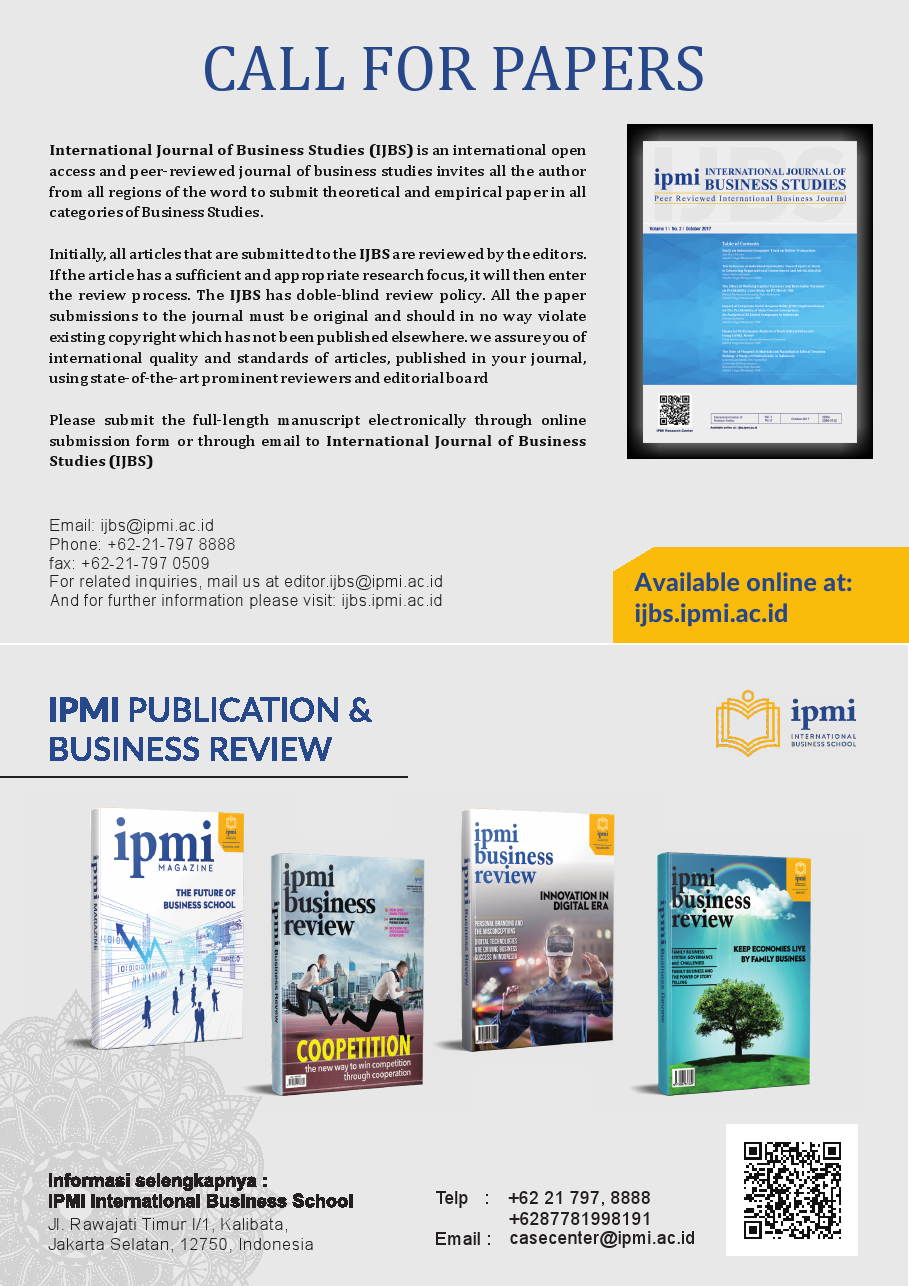Post-merger and Acquisition Integration: A Case Review of Dial Henkel And BP Amoco
DOI:
https://doi.org/10.32924/ijbs.v2i1.33Keywords:
Merger and Acquisition, Post M&A Integration, Organizational Culture, Change Management.Abstract
Post-merger and Acquisition (M&A) integration often deals with significant transformational changes of merging companies in terms of development, communication, implementation and harmonization of a new shared vision, strategic objective, corporate culture, and also combination of best companies’ value practices. The transformational change is accentuated on facilitating the role of developing and executing an effective post-M&A Integration to build change cohesively with the strategic management of M&A, and also in terms of removing barriers to the success of M&A transaction. The aims of this study are to give a clear and deep understanding on how to manage the soft factors issues that address in M&A process especially in the post-M&A integration process and also to elucidate the critical success factor of M&A process by instilling the best characteristics and the effectiveness level of leadership aspect in M&A. The methodology used in this research is descriptive qualitative research with a method or approach of a case study of Henkel’s Acquisition of The Dial Corporation in 2004. The acquisition of a USA company Dial by a German company Henkel evidenced that both companies were successful in M&A transaction and employed the effectiveness of multi-culture integration strategy. Another case study used in this research is British Petroleum (BP) and American Oil Company (Amoco) (also Atlantic Richield Company (ARCO) and Burmah Castrol) in 1998-2000. The case of BP Amoco showed that the monoculture integration strategy or cultural imposition can also lead to a value creation. Both case studies showed that successful integration requires leadership as a foundation to build a solid execution of post-M&A integration projects in how they planned, communicated and delivered the objectives of the projects.
Downloads
Submitted
Published
How to Cite
Issue
Section
License

International Journal of Business Studies by Sekolah Tinggi Manajemen IPMI is licensed under a Creative Commons Attribution-ShareAlike 4.0 International License.
Authors who publish with this journal agree to the following terms:
1. Copyright Transfer Agreement Form can be downloaded HERE.
2. Authors retain copyright and grant the journal right of first publication with the work simultaneously licensed under a CC BY-SA Creative Commons Attribution-ShareAlike 4.0 International License that allows others to share the work with an acknowledgement of the work's authorship and initial publication in this journal.
3. Authors are able to enter into separate, additional contractual arrangements for the non-exclusive distribution of the journal's published version of the work (e.g., post it to an institutional repository or publish it in a book), with an acknowledgement of its initial publication in this journal.
4. Authors are permitted and encouraged to post their work online (e.g., in institutional repositories or on their website) prior to and during the submission process, as it can lead to productive exchanges, as well as earlier and greater citation of published work.















